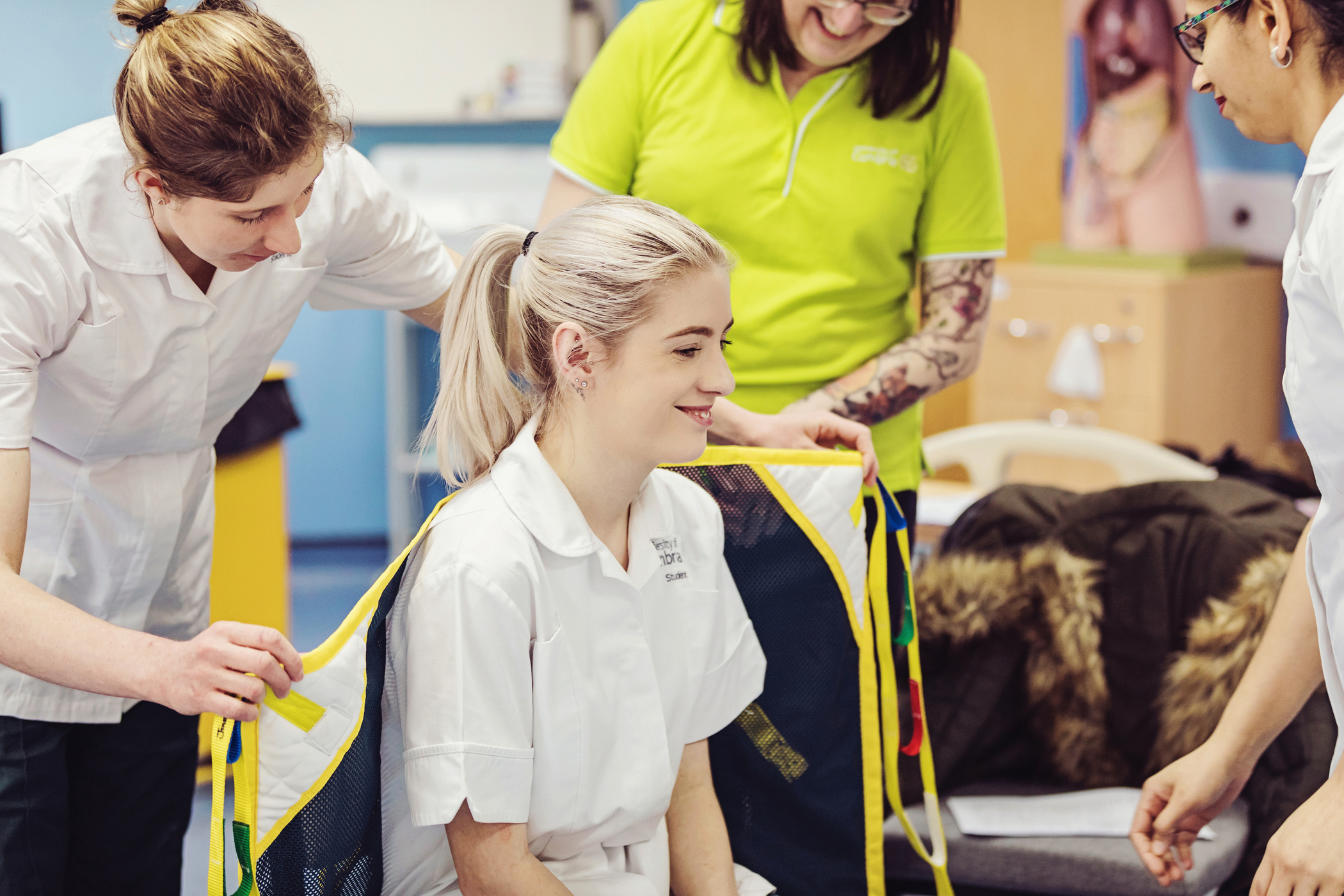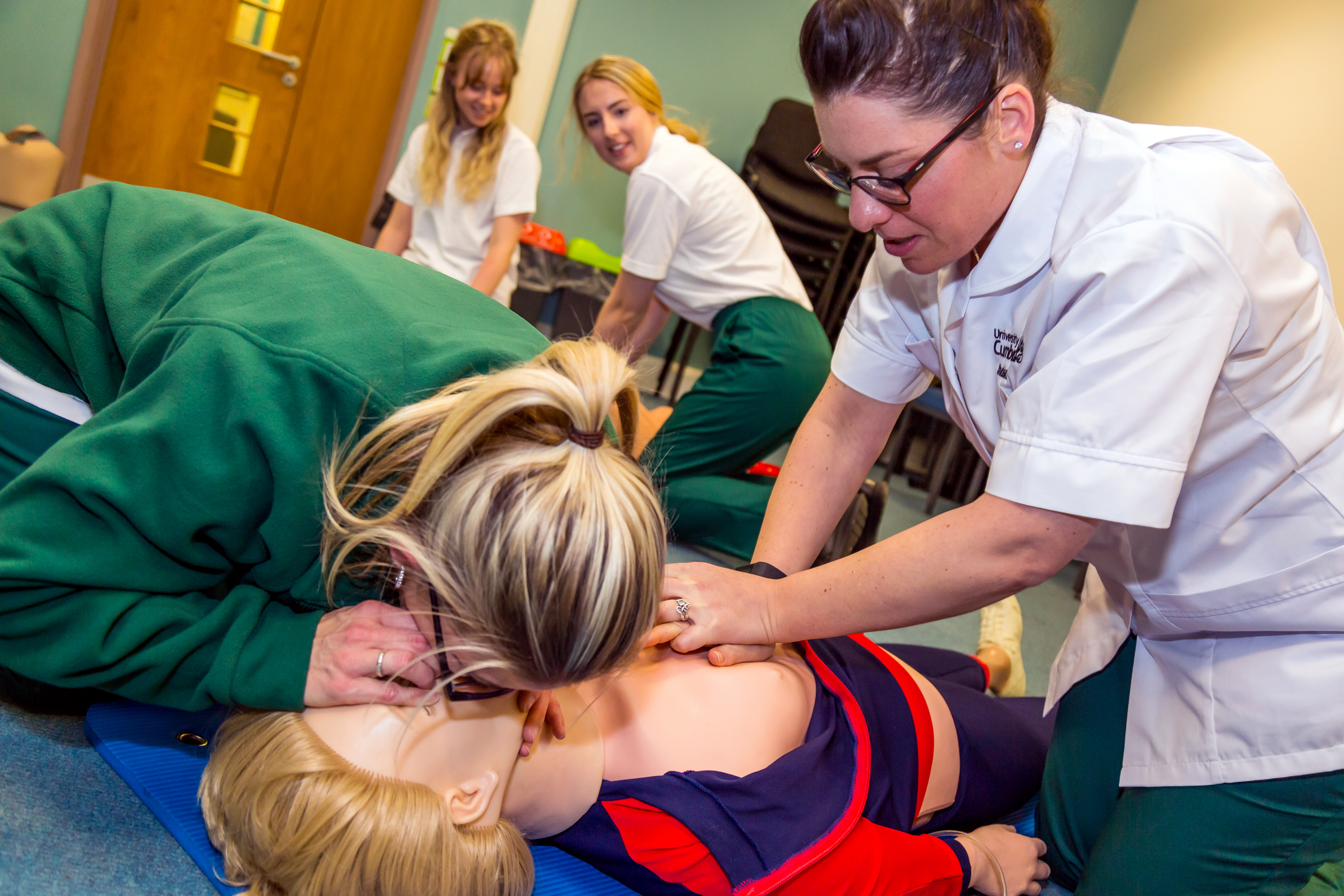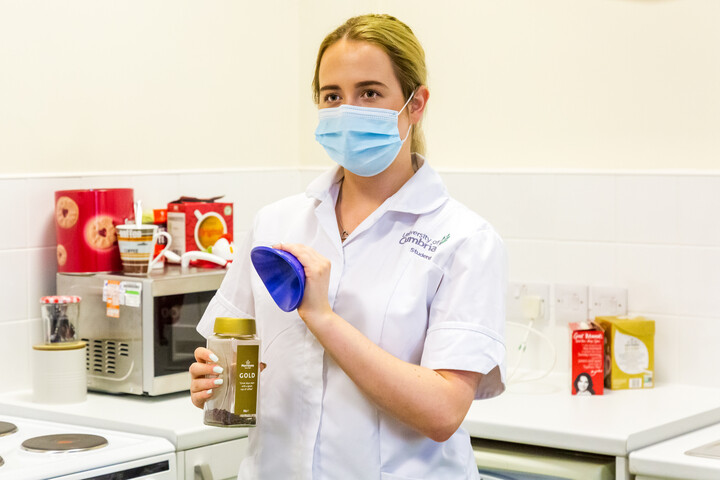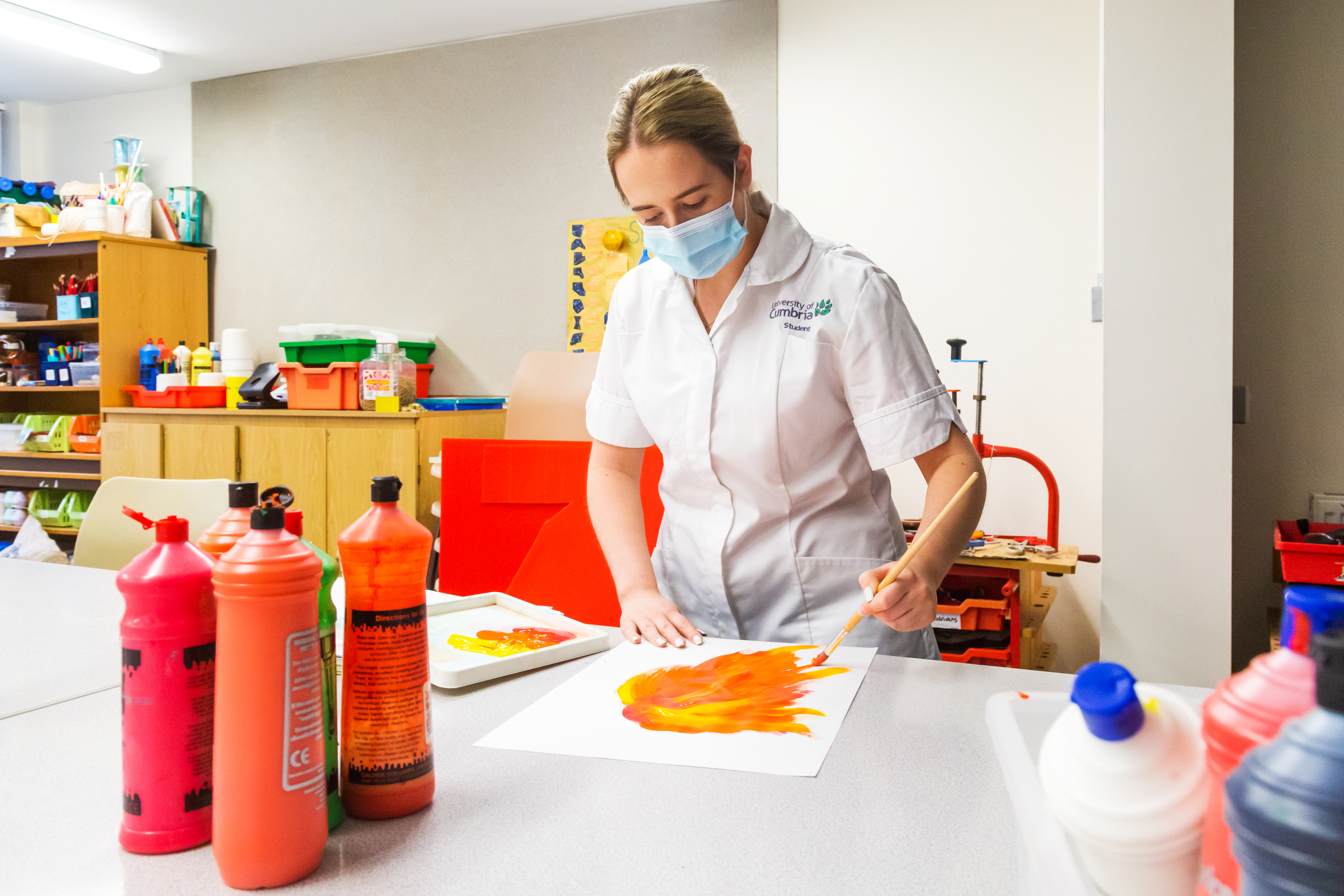BSc (Hons) - Occupational Therapy
Occupational therapists promote health and wellbeing. They work closely with individuals and groups, empowering them to address barriers that prevent them from engaging in everyday activities, identifying solutions and enabling them to lead the lives they want to lead.
This degree, accredited by the Royal College of Occupational Therapists, will equip you to become an occupational therapist registered with the Health and Care Professions Council.
Our programme responds to the ever-changing world of health and social care practice. You will adapt to – and actively shape – the varied settings in which people’s occupational needs are addressed.
Throughout, you will be fully supported by our team, who will get to know you personally and teach you the latest insights in occupational therapy. On campus, you will develop your skills and confidence in nurturing learning environments using our simulation facilities, including our purpose-built Occupational Therapy suite and mock ward.
With at least 1,000 hours of practical placement experience, you will immerse yourself in real-world practice working with children, adults and older adults with physical, social and mental health challenges. We work closely with local NHS Trusts and other organisations to offer quality work placements in NHS hospitals, health and day centres, care homes, councils, and private, voluntary and independent sector organisations.
The NHS Learning Support Fund, offering at least £5,000 per year, is available to eligible students. For more information and details of eligibility, visit nhsbsa.nhs.uk/lsf.
Course Overview
Our BSc (Hons) Occupational Therapy degree equips you with the expertise to become a skilled occupational therapist. We will support you to gain a wide range of up-to-date professional and practical skills so you can help people to do all the occupations they need and want to do.
Our programme offers you varied ways in which to learn, including hands-on sessions in classrooms and practical skills rooms such as our mock ward and flat. In our impressive simulation facilities, you will apply your theoretical learning to simulated real-world scenarios. These will enable you to build your confidence and skills in supportive practice environments, before progressing to real-life cases.
We have extensive practice placement providers and so can offer you a broad range of placements in areas such as physical health, mental health, children’s services and learning disabilities. Please be aware that for some placements, travel to your placement site may be up to 90 minutes each way. Your final placement is elective, which means you can choose where your placement takes place within the United Kingdom, or internationally. Further information about what makes an eligible elective placement will be given at the beginning of the programme.
We are regulated by the Health and Care Professions Council (HCPC) and our professional body is the Royal College of Occupational Therapists (RCOT). You will be eligible to apply for registration with the HCPC and membership of RCOT upon graduation. Our graduates have an outstanding reputation, making them sought after by a multitude of employers including the NHS, councils, and private, voluntary, and independent sector organisations.
What’s more, our Allied Health Profession courses are ranked 1st in the North West and top 10 in the UK. We are also 1st in the North West for continuation and career prospects following graduation from Allied Health Profession Courses (Guardian University Guide 2023 Results).
On this course you will...
- Be a member of a close-knit cohort and work in small groups with your peers, with excellent learning support from highly experienced occupational therapists.
- Benefit from our practical approach to teaching and learning in our purpose-built mock wards and flat as well as simulation suits.
- Be fully supported by our teaching and student support teams, enabling you to learn your way.
- Experience and learn from a range of practice placements which you are well prepared for with pre-placement practical skills and simulation learning.
- Have a personal tutor who will support you throughout your time on the programme, providing extra academic and pastoral support.
What our students say
-
![Aimee Bowden, BSc (Hons) Occupational Therapy]()
The course is so incredible and am thoroughly glad I got the chance to apply through clearing. I go on placement in few weeks, so I look forward to that also. The facilities, the lecturers and support from peers on the OT course is so amazing.
Aimee Bowden, BSc (Hons) Occupational Therapy
-
![Kiran Kadu, BSc (Hons) Occupational Therapy]()
I thoroughly enjoyed my Occupational Therapy degree at the University of Cumbria. From the very beginning, I felt a strong sense of community and support from both my peers and lecturers. The university provided an excellent balance of theoretical knowledge and practical experience, which allowed me to not only understand the concepts but also apply them in real-world settings.
Kiran Kadu, BSc (Hons) Occupational Therapy
-
![Lynsey Jenkins, BSc (Hons) Occupational Therapy Graduate]()
I have loved my time at the university of Cumbria and would recommend the course to anyone who is seeking to make a positive difference to people, on a professional level.
Lynsey Jenkins, BSc (Hons) Occupational Therapy Graduate
-
![Cam Austin, BSc (Hons) Occupational Therapy Graduate]()
If you come onto this course, you couldn't have landed in a better place, the support from tutors is sound. Just work hard, don't give up, use the support from tutors and enjoy it.
Cam Austin, BSc (Hons) Occupational Therapy Graduate
-
![Silica Doinita Ionita, Occupational Therapy Graduate]()
I was made to feel that I can achieve, I can move mountains (if needed!). The tutors discovered the part of me that I was not aware was there and gradually, with gentle guidance, prompted me to achieve.
Silica Doinita Ionita, Occupational Therapy Graduate
She was inspired by three close friends from Romania who had travelled to Carlisle to study with us. They’d reported back that it was a fantastic place to take that next career step.
Experience Cumbria




Location
Carlisle - Fusehill Street Campus
The Fusehill Street campus has been the setting of life-saving treatments since World War I. Now, it's home to world changers, life-savers, crime fighters, and entrepreneurs with access to high-quality facilities and innovative thinking.
Find out moreLocation
Lancaster Campus
Lancaster is the Red Rose heartland, a student haven full of history and culture. With iconic stone architecture, parkland, and a caring community, this is the place to get involved. The campus houses top-quality facilities tailored to the needs of life-savers, world changers, and future leaders.
Find out more
Find out more about studying with us
Attend an Open Day at Cumbria
An Open Day is your opportunity to explore one of 5 campuses, meet your lecturers, and find out how the University of Cumbria could become your new home.






-200x200.jpg)
-199x266.jpg)
-200x200.jpg)

.webp)


